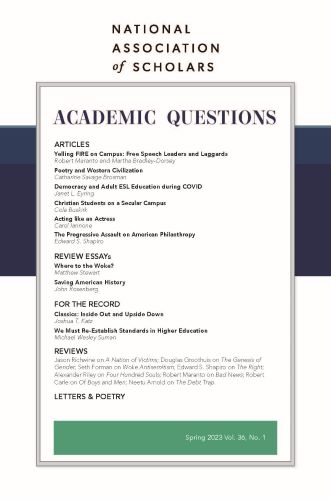Sonnet 19: When I Consider How My Light Is Spent
John Milton (1608-1674)
When I consider how my light is spent,
Ere half my days, in this dark world and wide,
And that one Talent which is death to hide
Lodged with me useless, though my Soul more bent
To serve therewith my Maker, and present
My true account, lest he returning chide;
“Doth God exact day-labour, light denied?”
I fondly ask. But patience, to prevent
That murmur, soon replies, “God doth not need
Either man’s work or his own gifts; who best
Bear his mild yoke, they serve him best. His state
Is Kingly. Thousands at his bidding speed
And post o’er Land and Ocean without rest:
They also serve who only stand and wait.”
Oxford, May 30, 1820
William Wordsworth (1770–1850)
Ye sacred nurseries of blooming youth!
In whose collegiate shelter England’s flowers
Expand, enjoying through their vernal hours
The air of liberty, the light of truth;
Much have ye suffered from Time’s gnawing tooth,
Yet, O ye spires of Oxford! domes and towers!
Gardens and groves! your presence overpowers
The soberness of reason; till, in sooth,
Transformed, and rushing on a bold exchange,
I slight my own belovéd Cam, to range
Where silver Isis leads my stripling feet;
Pace the long avenue, or glide adown
The stream-like windings of that glorious street,—
An eager novice robed in fluttering gown!
A Chromosome Ballad
Maja Trochimczyk1
The mothers of mothers of mothers
plant seeds, care, and give birth.
The fathers of fathers of fathers
plant seeds, care, and protect.
The mothers and fathers
and sisters and brothers
come here in organized waves.
The mothers and fathers
and sisters and brothers
leave Earth after passing their tests.
When grandmas and grandpas have learned how to live,
when moms, dads, aunts, uncles shared wisdom as if
they each had a thousand-year-old treasure chest
they could open with DNA keys at their best
matched in pairs XX and XY, intertwined XX and XY
strand after strand unwinding in pairs
to give you your eyes of hazel or gray,
your hair blond or brown, skin of varied hues,
your brilliance and talents, your gifts and your moods.
Remember the pathways
they came on and left—
the mothers and fathers
of east and of west.
Old Fashioneds
Catharine Savage Brosman2
Aunt Flora learned to drink them rather late,
but not too late. They carried her away
delightfully. She would not hesitate
to have a second, even third. She’d say,
“Don’t spare the bourbon; extra sugar, please.”
Her agèd muscles tightened, and her wit,
concise and pointed, flourished with fresh ease.
“A second cherry also.” In a bit,
she’d start a joke, the shaggy-doggie type,
enchanting us, although we knew it well
already. Just her smile and gestures—hype
not needed—made it new and fit to tell
again. She nearly danced, her little feet
alive with pleasure, every charming pound
(not quite one hundred) lively, in a neat
circumference. She’d sip her drink around
the bar, eat (sparingly), then work the room.
Where were her melancholy then, her years
in bed, the somber winter, Celtic gloom?
Old miseries had melted in the cheers
of friendship and high spirits. Thank the Lord
for whiskey if it filled that ruined lung
with oxygen, expanding the accord
of breath and heart that almost made her young.
1 Maja Trochimczyk is president of Moonrise Press, www.moonrisepress.com. She serves also as president of the California State Poetry Society and of the Helena Modjeska Art and Culture Club, modjeskaclub.blogspot.com; chopinwithcherries.blogspot.com; poetrylaurels.blogspot.com; villagepoets.blogspot.com.
2 Catharine Savage Brosman is professor emerita of French at Tulane University; [email protected]. Her book, Arm in Arm: Poems was published in 2022 by Mercer University Press.













